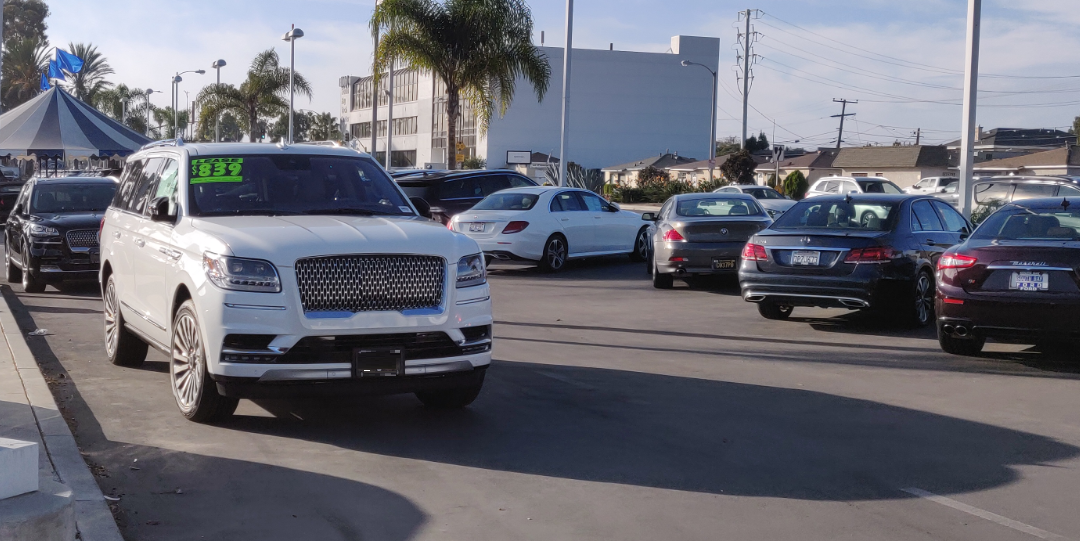For people who don’t know a ton about cars, the different ways of getting from one place to another presents a dizzying array of possibilities. You can purchase a new car, and have the piece of mind that your vehicle will be covered by a warranty and hopefully not be breaking down too often. Likewise, you could lease a new vehicle, and have that same piece of mind, and with a lower payment. Or, you could purchase a used car, either financing it or paying with cash, but adding the insecurity that goes along with a slightly older vehicle. So, whats the right choice for you? In this article, we will go through the possible options.\
Buying New
Buying a new car is a big commitment. So big, in fact, that it’s the biggest purchase people make outside of buying a home. For this reason, many people choose to finance a new car when the buy it. It has not become unusual to see financing terms for new vehicles advertising 60 months, 72 months, or even 84 months (that’s a whole seven years). Due to the low interest rates currently being offered by the Federal Reserve, financing rates on these long loans are quite attractive, often times as low as 0%. For this reason, buying new is more attractive than ever. But, as they say, nothing in life is free, and if you are getting free financing, that means you probably could have paid less for the cost of the vehicle if you had instead paid cash. Thus, consumers will want to debate the pros and cons of each, if they have the cash available to buy the vehicle outright.
When you buy a new car, that means it’s yours (or eventually yours, once you pay it off). You’ll want to be sure to do your research that the vehicle you are buying is known to be reliable, and that it has a good warranty. Because you will be keeping the car (and taking the hit on the depreciation when the car drives off the lot), it is best to commit to owning the vehicle for a long time, to extract the maximum value from your purchase.
Leasing
But what about leasing? With leasing, you still get a new car — in fact, if you always lease, you always have a car that is about two or three years old. This might sound very attractive. You will never have to worry about the hassles of an older vehicle, such as big service bills, or vehicles breaking down. One of the cons of leasing is that you are always paying — you always have a payment. However, lease payments tend to be lower than car payments, because the car isn’t yours. Furthermore, if you have a small business, you can often times write the cost of the lease off as a business expense, so be sure to consult your accountant. Ultimately, in the long-run, leasing can be the most expensive form of vehicle ownership, but if you’re willing to pay a premium to always have the latest model, and one that is more reliable, leasing can be a good option for you.
Buying Used
There is a wide variety of choice when it comes to buying used. Whether you scour Craigslist for a deal on an older vehicle, or whether you decide to buy a certified pre-owned car from a dealership with a warranty, it important to consider all of the variables. In this latter instance, buying “CPO,” you will get a lot of the benefit of a new car. CPO cars tend to be cars which have just come off of their lease, so they are usually two or three years old, lower mileage, and much cheaper than a new car, having already taken the hit on depreciation. CPO cars come with a warranty, though it is usually not as good or as long as a new car warranty. Because they are sold by dealerships, arranging financing for them is simple, though the interest rates may be slightly lower than those offered on new cars.
Where To Look
If you decide you want to try to save some money, you might look yourself for a used car from its owner, on either Craigslist or Autotrader. If you can find someone who took care of their car, this can be a good way to save money vs. a more expensive certified pre-owned car. If you are able to afford it, you can pay the owner with cash, or you can get pre-approved for a used car loan from a bank or credit union (which might have an interest rate which is slightly higher than on a CPO car form a dealership). Buying a quality used car with lower mileage that is known to be reliable can ultimately be the most affordable way to acquire reliable transportation, so long as you make sure you are getting a good model and one that hasn’t been abused. You might pay your local mechanic to do a “pre-purchase inspection” to make sure the vehicle you are buying is worth it, before taking the final plunge.
In Conclusion
Make sure you carefully consider all these vehicle types before buying, and all the possible financing options. Right now, it’s easier to get the information you need beforehand online, and then do your footwork to check out the vehicle you really want in person once you’ve done a bit of your homework. Whatever choice you make, good luck in your research and purchase!

